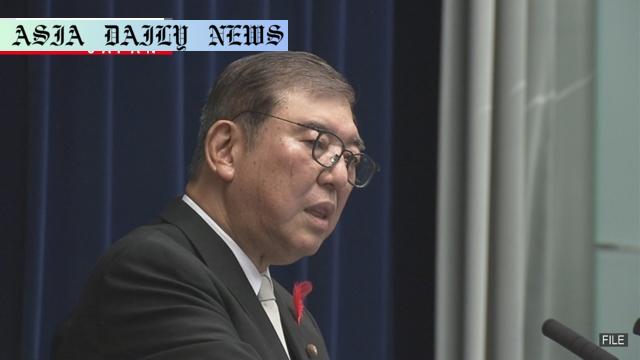Ishiba Cabinet: Approval for PM Ishiba rises to 44% as budget revisions and opposition views gain public interest.
Ishiba Cabinet gains 5% in approval, reaching 44%, with disapproval dropping to 35%.
11% highly appreciate Ishiba’s budget revision plans, while 55% moderately support it.
Japan faces concerns over US tariff impact; 57% foresee negative economic outcomes.
Japan-US relations predicted to largely remain unchanged by 65% of respondents.

Introduction: A Growing Support for the Ishiba Cabinet
The latest NHK survey brings encouraging news for Japanese Prime Minister Ishiba Shigeru, whose Cabinet approval rating has climbed to 44%, showing a significant 5-point increase from the previous month. At the same time, public disapproval has dropped by 5 points to 35%. These trends reflect growing public confidence, potentially bolstered by Ishiba’s proactive moves to engage opposition parties in revising the upcoming fiscal year’s budget bill.
Public Support for Budget Revisions
The survey, conducted over three days starting February 7, involved 1,212 participants from a contact pool of 2,800 people. Among the respondents, 66% expressed at least some level of appreciation for Ishiba’s consideration of opposition views in the budget proposal. Specifically, 11% rated the move highly, while 55% said they approved to some extent. These figures underline a cautious optimism among citizens, reflecting their hope for greater bipartisan collaboration in Japan’s legislative process.
Concerns About US Tariffs and Economic Impact
The survey also shed light on citizens’ concerns about global economic challenges, particularly the potential consequences of increased US tariffs. With President Donald Trump pushing for tariff hikes to address the US trade deficit, 57% of respondents expressed fears of a negative impact on Japan’s economy. Conversely, only 6% viewed the potential changes as positive, while 22% felt they would cause no significant impact. This underscores the sense of uncertainty lingering over Japan’s economic outlook.
Japan-US Relations: A Stable Yet Unchanging Outlook
The survey coincided with the first Japan-US summit between Ishiba and Trump, leading to heightened public interest in the future of bilateral relations. When asked about the trajectory of Japan-US relations, 65% predicted no significant change, while 13% were optimistic an improvement was possible. However, 11% feared relations might deteriorate. These mixed perspectives indicate cautious pragmatism among Japanese citizens, balancing hope and skepticism toward stronger ties with the US.
Implications for Ishiba’s Leadership
The improved approval rating signals potential momentum for Ishiba’s leadership. His decision to involve opposition voices in the policymaking process could pave the way for increased cooperation in Japan’s politically divided Lower House, where ruling parties currently hold a minority. At the same time, the public’s anxiety about external economic challenges places added pressure on Ishiba to pursue policies that will strengthen Japan’s resilience and protect its economic interests.
Conclusion: A Balancing Act Ahead
The latest survey results mark a positive step forward for the Ishiba Cabinet, reflecting growing public trust in his administration’s ability to address pressing issues. At the same time, the challenges posed by global economic shifts and uncertain US relations will require careful navigation. As Japan moves forward, the balance between domestic political cooperation and external economic strategy will be critical in shaping the nation’s future under Ishiba’s leadership.



Commentary
Rising Approval Reflects Positive Momentum
Prime Minister Ishiba Shigeru’s rising approval ratings come as a testament to his strategic approach to governance. At a time when political division can sometimes stagnate progress, his efforts to include the opposition in budgetary discussions reflect a commitment to collaborative policymaking. Such moves not only strengthen the public’s confidence in his leadership but also showcase his ability to navigate Japan’s parliamentary challenges effectively.
Economic Concerns Loom Large
While Ishiba’s proactive domestic policies garner approval, Japan faces significant external challenges. The public’s apprehension regarding potential US tariff hikes is not unfounded, as the economic ripple effects of such decisions could strain Japan’s economic stability. Moving forward, Ishiba will need to prioritize robust economic policies that mitigate risks while fostering stronger trade relations to ease public concerns.
The Prospects for Japan-US Relations
The Japan-US summit during the survey period further underscores the weight of foreign relations in shaping public opinion about government leadership. Although most respondents predict no significant change, Ishiba has the opportunity to build on existing diplomatic ties to create a more positive and fruitful partnership. The stakes are high, and public sentiment indicates that incremental gains may be critical for maintaining trust in his administration.
Final Thoughts
Overall, the Ishiba Cabinet’s rising approval comes as a bright spot amid global and domestic uncertainties. His willingness to engage opposition voices and tackle complex issues head-on suggests a leadership style that values inclusivity and pragmatic problem-solving. However, navigating the intertwined complexities of domestic and international issues will remain pivotal in sustaining public trust and ensuring Japan’s continued progress on all fronts.